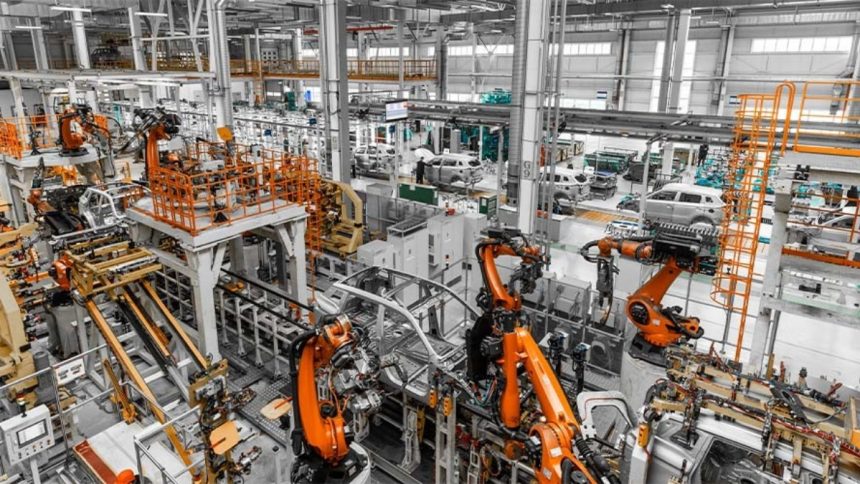It’s impossible to count all the ways in which artificial intelligence is creating a frictionless customer experience. From buying a coffee to ordering a dress online to getting a loan approval, AI is speeding up and simplifying every process. This article will look at some of the industries where AI is making the biggest impact on friction. Some might feel obvious, while others might surprise you — but they’re all making life just a little bit easier.
1. Automotive Sales
Buying a new vehicle is a high-stress experience for the customer — they’re making a huge investment that depreciates the moment they drive away. Adding to that stress is the fact that dealerships typically have fairly short hours in comparison with busy modern work schedules. Got an important question for your sales rep or want to confirm your test drive appointment? If you can’t call or get to the dealership by 7 p.m., you’re just going to have to wait.
Fortunately, automotive sales software is changing all that, with features like conversational AI, automated scheduling, and interactive demos. Thanks to these evolving technologies, a customer can chat with a lifelike bot at any hour of the day or night. AI agents can do complex tasks, like scheduling appointments and answering complex questions. Meanwhile, customers can explore detailed interactive 3D models to familiarize themselves with vehicle features.
2. Online Gambling Payments
Live online gambling events are high-stakes, high-pressure events that have to happen in real time. Consider customers placing bets on horse races like the Melbourne Cup, or on sports events like the Super Bowl. Customers need to place their bets within a certain window of time, or risk losing out on the chance to participate. If a payment fails, they miss out on a major event, and the gambling software platform loses that revenue.
To solve this problem, some payments platforms are working on AI solutions with automated safety nets to capture failed payments and decline fraudulent charges. These systems could automatically divert improperly declined transactions to the next best payments processor, without the customer even seeing an error message. The result is that the payment ultimately goes through before they have time to get frustrated, switch to a competitor, or miss their match.
3. Retail and E-commerce
A discussion of AI and friction wouldn’t be possible without including retail and e-commerce, where AI has led to remarkable transformation. In just a few years, the entire checkout process went from a series of long, complicated fill-in forms to just a few clicks. Newer technologies like automated personalized discounts, voice checkout, smart payment suggestions, and localization support continue to evolve and make the checkout process even smoother.
AI is also responsible for conversational search, where shoppers can find the products they want by typing and speaking questions or desired product details. AI can process natural speech — rather than a string of keywords — to recommend just the right dress or hand cream or coffee maker. In many cases, customers can virtually try on items, like apparel and beauty products, or visualize furniture in their homes, thanks to AI. The result is more satisfaction and fewer returns.
4. Logistics, Transportation, and Inventory Management
In e-commerce, the reason your products now tend to arrive on-time has to do with the use of AI in logistics and the supply chain. AI helps businesses predict how much more inventory they will need so they know when to order more stock from their suppliers. Then, it helps determine the most efficient routes for goods to travel so that they arrive with minimal delays. Finally, real-time tracking alerts customers if there is a problem, and helps them reach a resolution.
For example, imagine there’s a major container ship collision that blocks passage of a retailer’s merchandise through a key shipping channel. AI could automatically alert the retailer and help them find a new shipping route or a backup supplier in another location. If the retailer still can’t meet its delivery dates, AI can provide real-time tracking and insight to customers. Instead of being confused or frustrated, customers know exactly what’s happening with their shipments.
5. Banking and Finance
In the past, customers and businesses might have to wait weeks or even months for a loan or credit application to be approved. AI, however, is able to evaluate good candidates instantly, cutting the approval down to just days (for large business loans) or even minutes. That’s because AI is able to aggregate and analyze large amounts of data at a rate much faster than humans. It can look not just at credit scores or other basics, but instead assess the whole picture at once.
AI can also help reduce unnecessary fraud alerts that used to freeze accounts at the most inconvenient times. For example, when a customer was traveling, they used to need to alert the bank ahead of time. Otherwise, they might face the bank shutting down their card just when they most needed it abroad. Now, AI can analyze patterns in customer behavior to determine transactions are legitimate. There is less of a need to verify identities or freeze accounts.
Smooth and Steady Wins the Race
No one likes friction, and thanks to AI, there’s a little less admin in everyone’s lives. With more mundane tasks automated and sped up, there’s a bit more time to focus on the things that really matter. Instead of waiting in a bank line, take a walk in the park or make time to cook your favorite meal. If you’re not sure where to go or what to make, just get a recommendation from your AI app of choice!
Lynn Martelli is an editor at Readability. She received her MFA in Creative Writing from Antioch University and has worked as an editor for over 10 years. Lynn has edited a wide variety of books, including fiction, non-fiction, memoirs, and more. In her free time, Lynn enjoys reading, writing, and spending time with her family and friends.















